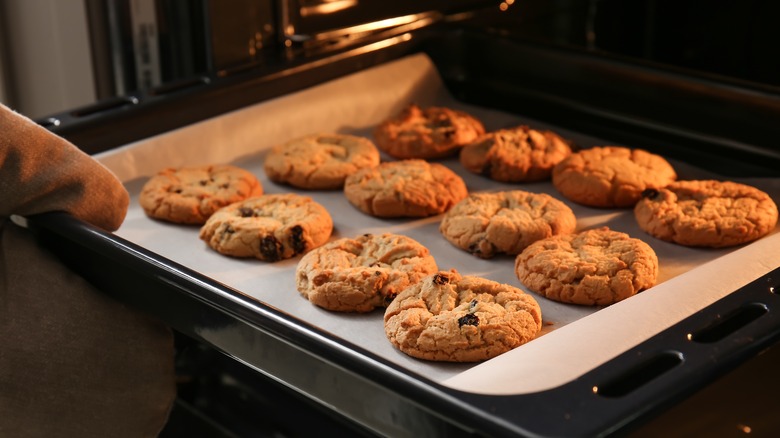How Does Altitude Affect Baking Cookies?
Baking homemade sweet treats is a great way to enjoy baked goods fresh out of the oven — and, as an added bonus, they will make your kitchen smell great, too. Cookies have been a popular treat for centuries, with the first known recipe dating back to 7th century Persia, per What's Cooking America. Over the years, the recipes have evolved, from the classic chocolate chip, to banana and red velvet.
With a wide variety of flavor options, there is a cookie recipe out there for almost anyone. For something a little bit fancier, you could try your hand at baking macarons — two delicate cookies with a cream filling between them. However, there are a few different factors that can impact the quality of your cookies. Different types of ovens, baking trays, or the temperature outside. Baking in a high-altitude environment is another thing you may need to take into consideration when baking up the perfect batch.
Adjust for altitude
King Arthur Baking states that there may be a few adjustments needed when baking at higher altitudes, one of which is the temperature. When baking, they explain that evaporation happens more quickly at higher temperatures, and adding some extra heat could help the structure of the baked goods set up better before it dries out.
When you are baking something sweet like cookies, King Arthur Baking suggests reducing the amount of sugar in your recipe when baking. The increased evaporation can up the sugar concentration, making your treats overly sweet. For every cup of sugar in the recipe, they suggest removing one tablespoon.
At higher altitudes, Epicurious reports that leavening gases expand more quickly, so you should be baking with less baking soda or baking powder. They also state that if you are using whipped egg whites as a leavening agent, leave them slightly under whipped so they can stay stable. The outlet also suggests adding an extra egg, which will add some extra liquid to your treats.

